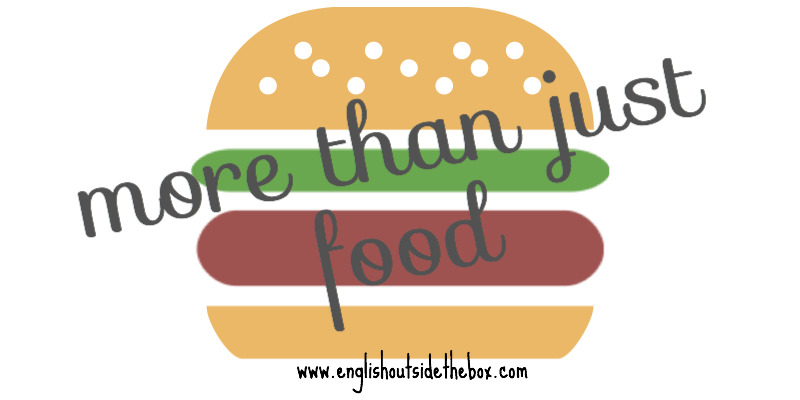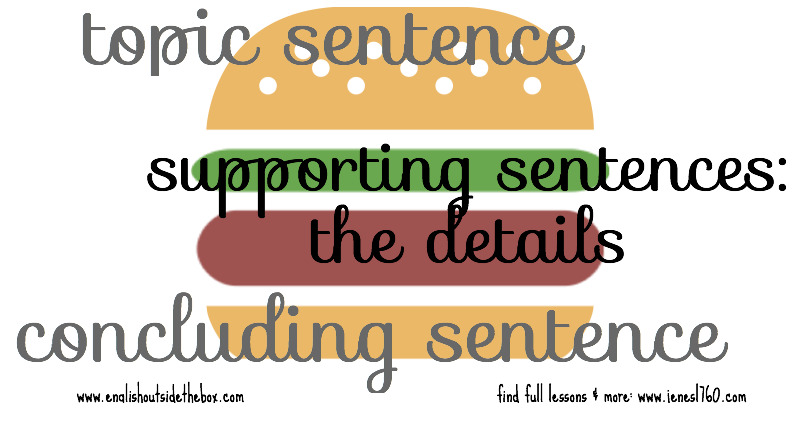Free Friday: Writing Part 1
HAMBURGER WRITING
 I know you’ve probably always heard, “don’t play with your food” but today we are going to have a bit of fun with it. Okay, so we’re not really going to play with it, but realize how useful a good ‘ol fashion hamburger can be….and how it’ll help you and your writing.
I know you’ve probably always heard, “don’t play with your food” but today we are going to have a bit of fun with it. Okay, so we’re not really going to play with it, but realize how useful a good ‘ol fashion hamburger can be….and how it’ll help you and your writing.
Whatever writing you’re currently doing, GREAT! Keep it up. It can be therapeutic, and a way to get things off our chest, or learn how to express ourselves. It can be personal and connect us with dear friends that are not so near, but then of course, it can be necessary for our academic and professional future. [Un]fortunately academic writing is what we’ll focus on today. We’ll start with some basics, academic writing 101 if you will, and learn some basic concepts that maybe you’re not familiar with, or just not comfortable with yet….
The PARAGRAPH
The paragraph is necessary in just about any form of academic writing. It can be the main substance of short/quick writes, or it can be just a small part of a much bigger essay. Learning about what makes a great paragraph will help create better structured, stronger writing assignments. So….
what is a paragraph?
a group of sentences that relate to a main subject or ‘theme’, and usually begins on a new line with an indentation
There are 3 main parts to a paragraph that we will focus on in part 1, similar to a hamburger:
Topic Sentence:
As the first sentence, its job is important and needs to name the subject/theme of the paragraph. It will briefly state what the theme is and what the paragraph will continue to describe/explain.
- 2 parts: topic & controlling idea
- topic: name the subject/theme
- controlling idea: explain what the paragraph will be about
Supporting Sentences:
The middle sentences are the details, “the meat.” [or in my case, the veggie patty♥] They are called supporting sentences, because they do just that, give support to the topic sentence and provide more details/descriptions/explanations about the paragraph’s subject.
transitional words help guide these supporting sentences, and explain the subject/theme introduced in the topic sentence
- example ~ listing order: first, second, third, additionally, finally, also
Concluding Sentence:
The final sentence will conclude, or end, the paragraph. It often repeats the main idea of the topic sentence [in different words, of course], will summarize the main points, or in longer essays, will give a good lead into the following paragraph.
- single paragraphs will use the concluding sentence to remind the reader the main point, or summarize what was said
- paragraphs part of an essay will conclude the main idea while transitioning into the next
- transitional words help reinforce it’s the end/transition
- in short, finally, in conclusion, to conclude, to sum up, in summary, indeed
Don’t forget your sentence structure!
simple structure: Subject + verb [+ object]
compound sentence: simple structured sentence, + coordinating conjunction + simple structured sentence
connecting words to remember:
and ~ connects 2 or more similar ideas in an affirmative sentence
or~connects 2 or more similar ideas in a negative sentence || OR || connects 2 choices/alternatives
coordinating conjunctions: (FANBOYS)
for, and, nor, but, or, yet, so
PRACTICE makes PERFECT
Let’s take a look at this similar paragraph example from the Longman Writing Series:
Beaches are fun in summer and in winter. In summer, you can swim and do many other water sports. If you don’t like water sports, you can play beach games or relax. In winter, beaches are less crowded, so they’re good for solitary walks. Also, on a clear winter night, nothing is more fun that a big bonfire. Indeed, a beach is a place to have fun all year.
Can you identify the topic sentence [topic & controlling idea], the supporting sentences, and the concluding sentence? [see below to check]
For your own practice, try writing some paragraphs in the comment section, or send by e-mail through the contact page. Some idea topics you can writing about:
- introducing family
- describing a place
- state the reason you’re learning English
- express your opinion about this blog
- your favorite winter/summer activity
Happy Studying & Happy Writing ♥
I look forward to hearing from you.


[…] it with Free Friday (remember those lesson plans I had been posting a while back: Breaking Bad, Writing Help, Modals, #FBF?) to present the newest excitement over here at English Outside the Box, my Video […]